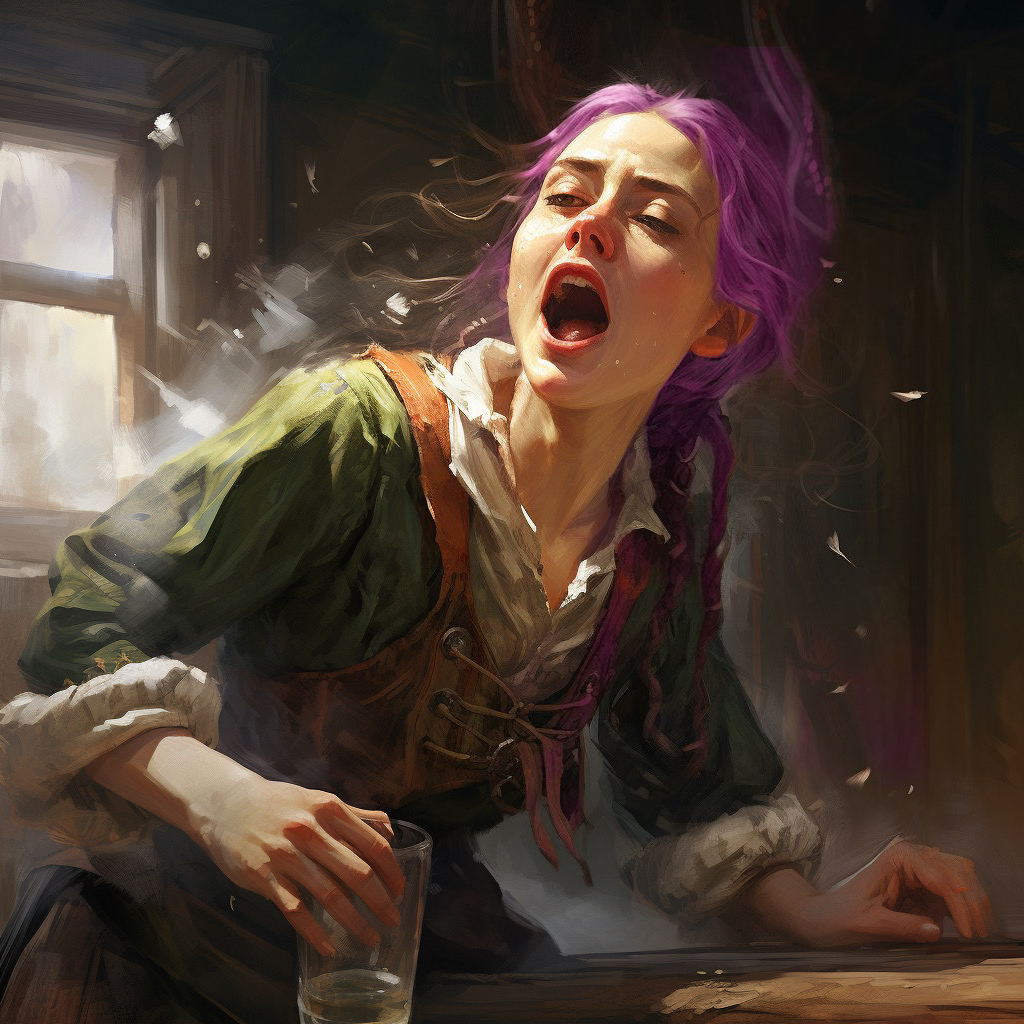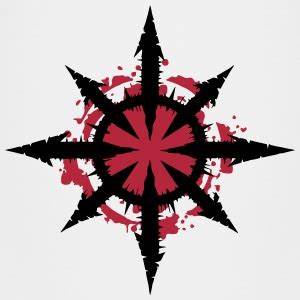Torwick Peckerwrecker, peckers gon' get wrecked
just looked at the wiki for this. pretty intense worldbuilding for a D&D homebrew turned eu4 mod. makes my own worldbuilding look like sad deflated poop
Yeah it's got a lot going on in it, but they've been working on it for years and I'm pretty sure multiple parties have been involved in fleshing out mission trees and consequent bits of lore. I think the lead dev did a dissertation on it for his education, lol
And he's a great general, hope he lives long enough for my gnomes to actually get some troops with fire pips, lol
What do you think is the quickest way to learn EUIV ? Im pretty comfy with Stellaris and Crusader Kings 3 but I still struggle with EUIV.
The thing about Paradox games is that their mechanics are often very simple; but playing them well is all about using sound judgment & having good luck, and those are often not really learnable skills, at least not very easily.
EU4s rules are really very simple, as simple as :stonks-up: & :stonks-down: , really. Make good number go bigger, the more bigger the more gooder; keep bad number small, more smaller more better.
Good numbers are your ducat inflow, your development score, your soldier pips, and your ruler points. Bad numbers are your war exhaustion, corruption, inflation, and Aggressive Expansion Impact.
There are some tricks however. Numbers like Religious Unity, Stability, Expenses, and AI Relations can be Good or Bad, depending on what you intend on doing with them. Similarly, Aggressive Expansion can be easily abused by cycling wars in different areas of the globe, or against different religious groups, and by abusing diplomatic actions to force truces on relevant parties.
tbh there might not really be a quick way, you could watch people play but depending on their skill level they might be doing weird gamer move shit. I learned by playing a shitload and reading stuff on the wiki/subreddit, and still with thousands of hours in I'll sometimes learn there's some wonky shit to a mechanic and be like "wow that would have been helpful to know"
is there a particular thing that you struggle with? I've got a lot of free time to explain stuff
edit: but I'm not like the best player ever and a lot of the more arcane stuff I'm just like "lol that's nerd stuff it's too much"
Thanks for the reply. Honestly I guess its more of a "me" problem. In games like Crusader Kings and Stellaris I actually make it to the endgame. In EUIV I usually stop playing after like 3-4h and put it away for a couple months. Still have over 70h in EUIV doing that. I do plan to give EUIV a proper go with the upcoming update and hopefully stick with it. The game just feels a bit more occult to me than the other paradox games. Was just curious if you have any tips.
I mean I might have tips but without knowing what you find overwhelming or difficult to get idk where I'd even begin, but I think that if you're comfortable with CK3 you'll get it eventually, it's really not that much different aside from you being the nation, not the character/dynasty, and political marriages being just something that gives relations bonus + a chance at personal unions (if you're Christian, in the base game, at least, other religions don't have personal unions which is kinda lame)
Ok since you asked for more specific problems. What the fuck is going on with trade I usually place my merchants in trade nodes that look good and collect money there but I have no Idea what im doing in that area of the game. Is it relevant to the game ? Or is it a feature that can be mostly ignored. I feel like im missing out not making the most out of it....assuming I would know how to do that.
Oh yeah it's relevant, in that you want to make as much money as you can, obviously, so you want to make sure you're using your merchants in a way that does that. Some people will have their merchants collect in nodes where they have sufficient power, but in general what I do is have my merchants set in upstream nodes steering trade toward my collection node. In general that's going to be where your capital is, unless you specifically change your collection node. If you want to change your main trade node to a different province, there's a button in the top left of the province window, shaped like a box, it's next to the button that lets you change your capital. I.e. here's where the button to change that is.
However, that costs diplomatic points, which can otherwise be spent on technology/development/other stuff, so ideally you don't want to do that unless you can switch to a more downstream/richer node where you have a good amount of trade power. In base EU4 the "best" trade nodes are generally the English Channel, Genoa, and Venice, in that order, as these are the "end" nodes that all trade flows to (the reason the English Channel is the best is because almost all trade can be directed towards it, with Venice having more nodes that can't be directed towards it). Changing your capital will also change your collection node btw, but that takes admin points unless it's done by a decision/mission tree thing.
Now, you automatically collect trade in your home node, but adding a merchant to it does increase your trade power there (and allow you to change trading policies, i.e. there's one that increases trade power, one that increases your Improve Relations modifer for every nation in that node, one that does the same for Spy Network Construction, etc). The reason I find it better to have your merchants upstream, steering trade towards your main node, is because there's a multiplicative modifier on trade power and trade value, so you might end up with more trade income that way. However, sometimes you'll have comparatively little trading power in your home node, or there might be some nodes in between where someone else eats a good chunk of it, so sometimes you might make more money having a merchant set to collect in an upstream node where you still have a good amount of trade power. A good vanilla EU4 example is the Ivory Coast, or the Cape of Good Hope, as both get a lot of trade flowing through and you might make more money collecting there than you would if you send it upstream (where it might get taken up by Spain or England or what have you).
Honestly though trade is one of the things where there's a lot of numbers going on and it's A Lot Of Nerd Shit so I'm not really an expert with it, what I generally do is play around with my merchants and see what makes me the most monthly income and go from there. So, I recommend playing around with it a bit, especially since whatever nation you're starting as/your location might make an impact on how you need to set up your merchants.
p.s. other important factors to consider are your light ships, which can be set to "protect trade" in a node, or sent to privateer. If protecting trade, they basically add trade power (iirc 2 trade power per ship, plus more with ideas/the naval policy that increases it. Venice also gets an Age bonus in the Age of Discovery that increases it by a lot) to the node they're sent to. It'll tell you theoretically how much profit you'll make after the fleet's maintenance is considered, but sometimes it's not quite accurate. If ships are sent to privateer, they steal a portion of that node's trade value and it'll show up in your income as Spoils of War. Again, it's a lot of nerd stuff to me, so you might just want to play around with it and see what makes you more money per month. Also some nations get privateering bonuses that make it a lot more effective. However privateers can be negated (although not all the way if you have bonuses, iirc) if someone sends ships to "hunt pirates" in that node (the ships don't fight unless you're at war, it just calculates how many cannons on the ships sent to hunt pirates vs the privateers and reduces privateering efficiency from there).
Another important note re: trading policies with merchants: the improve relations trading policy can sometimes be useful outside of actually improving relations, because your Improve Relations modifier is what determines how much Aggressive Expansion you lose every year (which always ticks down December to January, btw, not every month), which can help you avoid coalitions if you're taking a lot of land.
also I forgot to mention that, if it isn't obvious already, merchants steering trade downstream directs where that trade value goes- the trade map mode (and selecting the node) will show you the incoming and outgoing values for trade, and basically the outgoing value will get added to the trade value in the node downstream
and uhhh more stuff on trade: you get more merchants from every Colonial Nation you have with 10+ provinces, as well as every Trade Company region with 51%+ of province trade power, so that's another important thing to keep in mind. TCs are basically a mechanic where provinces on other continents (excluding the new world) can be added to trade companies, which greatly increases their trade power at the cost of tax and manpower, and you can't convert religion (outside of special circumstances i.e. Muslims get a Trade Policy to Propagate Religion in the node the merchant is in). Generally what I do with that is once I colonize a province in Africa/Asia/Etc with a center of trade, I convert religion and then TC it. You don't necessarily have to convert though, but if I'm playing colonialist assholes why not m i rite.
Sorry I kinda rambled but there's a lot of stuff going on in this game, also I'm drunk.
if you have more questions or if I failed to explain something feel free to ask more stuff
Is it relevant to the game ?
like yes, but you shouldn't worry too much about it, just keep these in mind: estuary good, these are provinces that give a lot of trade power in a node they have a lil icon when you are in the trade view, you can upgrade them for a lot of money. Having more trade power in a node means you make more money out of that node so if you collect there you will make more money, transfering trade power is good if the node transfers to your node and you are colecting there already, if a trade node has a lot of money and you have light ships you could privateer and make some cash and that doesn't even use a trader, or you can use them to give you more trade power on your trade node or a trade node you are transfering from so you steal more money from there, that is pretty much all you need to know without going way too much on how it works, like there are also end nodes, in vanilla they are geneva and venice and the one under england, and they have no place to transfer and that makes them great because no one can steal money from there, so those are generally really good to be pirating or conquering, also republics are better at trading and some countries are better at it , it depends on the ideas and special government stuff, but like it is fine, you really don't need to make the most of it unless you really want to steamroll the ai
Trade is one of the wackier bits but it's not too much to handle. At its core trade is a flow that goes from upstream nodes (starting in China, Australia, California, and one more I think in South America somewhere) downstream towards Europe (because of course it does). At every node traders have the opportunity to either collect some of the trade value as money or push it downstream, proportional to trade power (and other stuff but don't worry about that right now). Every time trade value gets pushed downstream to another node its value is added to the base value of the next node, and that process keeps happening until you hit an end node in Genoa, Venice, the English Channel, or Lubeck (I'm pretty sure that's all of them). The amount of value you can collect from a node is connected to your trade power in that node which comes from several sources that change in importance over the course of the game (provincial trade power, ship trade power, and global trade power, plus bonuses). You get one trade node assigned as your home node, which defaults to the one where you have the most provincial trade power. You get a huge penalty to collecting from trade in any node other than your home node, so the only strategy to trade is to collect in your home node and transfer trade towards your home node in every upstream node you can reach, starting with the ones where you have the most power. To get more trade power in upstream nodes and your home node (as well as getting naval tradition) send light ships to protect trade in that node. Early game provincial trade power is very potent, but as ships get stronger and fleets get bigger protecting trade in valuable coastal nodes will become more important.
Lubeck
Lubeck is not an End Node, it flows into the English Channel I am afraid. :shrug-outta-hecks:
I knew I got one of them wrong. Is Black Sea an end node? I haven't played in months and I was doing this from memory so there were bound to be a couple mistakes. Also a small part of my brain tells me that Polynesian Triangle is no longer a starting node.
Watch out for his cousin, Thorbald Cootershooter
Anbennar, it's basically homemade dungeon's and dragons type setting, it's pretty well done
don't worry it's not a totally arbitrary hierarchy, just gotta put gnomes up at the top where they belong, then it's a republic where all proper citizens have a say
*with my current reforms only having an election by sortition on ruler death, and my god "president" gnome is <100 and can live to 250 :troll:







